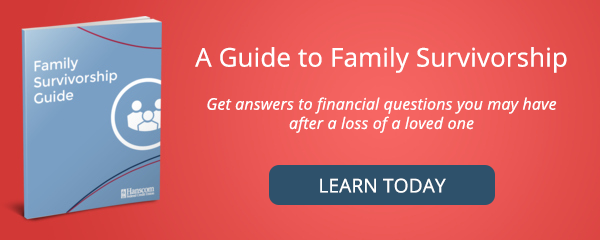A 2019 survey from Caring.com reports that nearly 60% of adult Americans don’t have a will. It’s a basic tool for estate planning that everyone should have. A will gives instructions on how you want your assets and affairs handled after your death, which can have much greater implications than it might seem. Even if you have a trust, you should still have a will for any assets the trust does not cover.
If you are in this majority, here are five consequences of dying without a will:
1. You have no say how your assets are distributed, except those covered by a trust or a named beneficiary
When someone dies without a will (legally called “intestate”), the state will decide how to divide your assets. Typically, the bulk of the estate will go to a spouse. Your children will also get a share, or if there are no children, your parents.
Next, the state will look for siblings, nieces, nephews, aunts, uncles, and cousins. If no qualified relatives are found, your estate becomes property of the state in a process called escheatment. If you are in a relationship but have no marriage certificate, your significant other may not be able to inherit from one another or be considered “next of kin” for medical matters. Documents such as wills and power of attorney can help to ensure that those closest to you are able to retain some of these legal statuses.
2. Your personal representative will be appointed by the court, not chosen by you
A will is where you designate an executor, or personal representative. This is the person who takes responsibility for your estate after you die. They make sure final bills and taxes are paid and your assets are distributed properly. If you have no will, you have no executor. A judge will determine who manages the process.
3. Your estate does not have a provision for charity, or persons not related by blood or marriage, except named beneficiaries of a specific asset
Say you want to establish a scholarship at your alma mater, leave your pet in the care of a loved one, or you want your best friend to choose a piece of jewelry as a remembrance. Unless you set it down in your will, there is no guarantee that will happen.
4. Your personal possessions may not be distributed as you wish
Think family heirlooms, furniture, and other valuable or sentimental items. A will can help settle differences and manage frayed emotions at a stressful time for your loved ones. Plus, a will can defend against unfounded claims on your belongings
5. Your minor children will have a guardian named by the court, not you
This is a top reason people put off making a will. No one wants to think about leaving children behind. As hard as this task is, designating a suitable guardian for your kids is a crucial part of taking care of your family. Without it, a judge will try to make the best decision possible with only the information at hand, without the specific knowledge you have about needs, personalities, or lifestyle.

Fortunately, a will need not be costly or time-consuming to prepare. A simple will costs about a couple of hundred dollars. You could pay more due to complexity, size of your estate and your geographic location.
You don’t need to have these consequences of dying without a will in your future. A knowledgeable attorney can help you make sure your wishes will be carried out. They can also talk to you about how to communicate your wishes to your loved ones and make sure someone knows where to find a copy of your will.
If you've lost a loved one recently, our Family Survivorship Guide can help you navigate the financial decisions you'll need to make in the months ahead. Download this free guide here.
Others are reading:














Comment